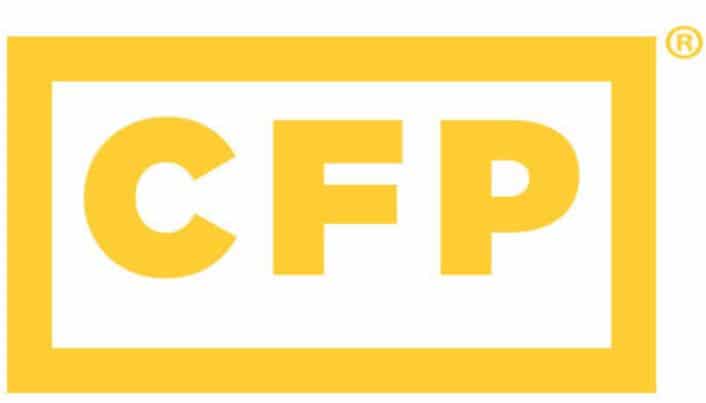-
Financial Planner Guide
The selection of a trusted financial planner, who will advise and influence your financial decisions for years to come, is one of the most important choices you will ever make, like selecting the right primary care physician for your family.
It will take some work on your part to understand the financial jargon and to sift-through this handy check-list -but partnering with the right financial advisor can help reduce your financial stress while providing greater confidence and security with your financial decisions.
Below are 13 questions you will want to explore before you retain someone to be your trusted financial advisor. You can ask these questions at your first meeting or send them in advance, so the advisor is ready to address them when you meet. You might also find some of this information on the advisor’s website.
If you have any questions on our financial guide or would like to set up a complementary retirement and investment check up with Jon Ulin, CFP® ,CEO, please call (561) 210-7887 to get started.
13 Financial Planner Questions
1. What are your credentials?
There is an abundance of important looking initials and letters after many financial advisor’s names. With over 200 advisor designations noted on the FINRA website, you might be asking yourself why you should care if your advisor is a PFS™, ChFC®, CLU®, CPWA®, AIF®, CSA®, BFA™, CPWA® or anything else in this arena?
Many of these titles in what we refer to as the “alphabet soup of advice” are relatively unknown to the majority of the financial advisor community and the investing public. Each professional designation in the financial industry differs in terms of knowledge, experience, and course of study. Most designations are not accredited and more than a few have little to do with financial planning advice or investment management.
Most people think all financial planners are “Certified” but this is not true. Only those who have fulfilled the national comprehensive exam and ongoing renewal requirements of CFP® Board can display the CFP® marks, which represent a high level of ethics, education, competency and work experience. CERTIFIED FINANCIAL PLANNER™ practitioners are required to put your interests above their own while providing their services as a fiduciary. There are only 87,000 CFP® professionals practicing in the nation (cfp.net).
2. What industry experience do you have?
Financial planning advice along with investment and insurance products and services can be provided by brokers, investment advisors, insurance agents and even accountants. Simply put, anyone can hang a shingle on their door and call themselves a financial planner by passing a securities exam and paying a fee.
When vetting a financial advisor, ask for a brief description of their college and work experience. Don’t be fooled by an advisor’s age, hair color or appearance as related to his or her experience or tenure in the financial services industry.
There are many advisors that may have been working in another career, like an IT specialist, car mechanic or realtor before switching over to financial planning as a “mid-life” career change and may only have a vocational degree and a limited few years of financial experience themselves.
3. Have you ever been disciplined or have any customer complaints?
Most people may not consider asking tough questions like these. The planner may even dodge the questions or indirectly answer if there is a red flag on their record. The Latin rule of “caveat emptor” greatly applies up front before retaining someone to advise you on your financial life and life savings.
It’s important to know whether an advisor has previously violated rules or misled consumers. Any customer complaints filed against an advisor may raise a red flag. Most people take precautions when hiring a primary care doctor where their health and life is concerned – but in many cases, do not seek information on the education, licensing and professional background of their trusted financial planner.
You may find both professional and personal information about brokers and financial advisors through FINRA’s BrokerCheck and the SEC’s Investment Adviser Public Disclosure databases. Do not assume anything. At the very least, conduct a Google search to verify their background and any potential areas for concern. If there are a few complaints filed against the advisor, you may want to consider finding someone else.
4. What types of clients do you typically work with?
Ensure that your financial advisor’s client demographics, communication style, service plan and experience match up to your personality and goals. Some advisors only work with certain types of clients such as retirees, millennials, or small business owners. There are also advisors that predominately work with clients in specific niches, such as doctors, teachers, or corporate high-tech engineers.
Other advisors may only work with clients at a certain asset level. It’s important on many levels to make sure the advisor you select is a good fit for your individual financial situation and will provide you the attention and service you desire.
Selecting an advisor who works with clients whose age and or situations are similar to yourself can indicate they could be better equipped to offer the type of guidance and advice you need. If your advisor is not meeting your personal requirements, you should find someone new to work with.
5. What products and services do you offer?
Credentials, licenses, and areas of expertise are all factors that determine the products and services an advisor can provide.
Ask the advisor what products, services, and advice they offer. Many advisors sell the same cookie-cutter financial plan and or investment products, like a doctor administering same “Z-pack” for every sick person that walks into their office. This is a perilous example of “prescription before diagnosis.”
Some planners (such as CPA’s offering financial planning for a fee) may not have the ability to help you execute on their recommendations and may be receiving compensation from other professionals as a referral fee.
Consider when hiring a financial professional whether you simply want investment management or if you want a more comprehensive financial planning approach as well. Some financial advisors may specialize in helping clients navigate the financial challenges of a divorce or loss of a spouse, while others may focus on getting their clients retirement ready while consulting on retirement income, Social Security, Medicare and long term care insurance planning strategies.
6. What are your incentives and conflicts of interest?
Ask advisors to describe any potential conflicts of interest. For example, advisors who sell insurance policies, annuities, securities, or mutual funds may have a direct or indirect business (selling) relationship with the companies that provide these products. Ask how much he or she is getting paid for the product they are pitching you.
Ask about any relationships they may have with investment, insurance, and other companies. Are they receiving any type of financial incentive that could be a conflict of interest in the products offered to you?”
Consider that an insurance agent may be in business to sell you “in house” insurance and annuity products or an investment advisor representative at a “big-named” bank or wire house may be geared to provide you their own product mix of funds, insurance, banking and lending solutions, which may be a conflict of interest.
7. How do you get paid?
Make sure to ask your advisor how they get compensated and on the frequency in which they get paid. In most cases this information should be provided in writing and signed by both the client and the advisor.
You can pay for financial advice in several ways: Typically, advisors charge a flat fee or hourly fee for financial planning advice and an additional ongoing “asset-based” fee for portfolio management. Some advisors could also earn up front commissions for selling additional investment and insurance-based products.
Fee-only vs Fee-based: “Fee-based” advisers charge an upfront fee, but they may also receive commissions for selling investment or insurance products. “Fee-only” advisors only make money from the fees they charge their clients and not from receiving any fees or compensation based on products sold. If you’re worried about being subjected to regular sales pitches, you might be better off with a fee-only financial advisor.
Financial Advisor vs Broker: The primary difference is that financial advisors assist with financial planning and investment management for a fee, while brokers primarily deal with investment management and are paid commissions to execute trades or buy and sell assets for clients.
Fiduciary vs Suitability: One critical legal difference between a stockbroker and a fully registered advisor hinges on the word “fiduciary.” A fiduciary is a professional who manages money for another. U.S. law places a positive obligation on any fiduciary to put the interest of its beneficiary first.
Under the Investment Advisers Act of 1940, all investment advisor representatives (IAR’s) (which many financial advisors are) carry a fiduciary obligation to their clients. This is not so with stockbrokers. Instead, the stockbroker must only follow the standard of “suitability,” which does not require the client’s interests to be placed first; stockbrokers need only provide suitable advice given the client’s resources.
Note: Stockbrokers owe fiduciary duties to their broker-dealers. Registered investment advisors do not have a broker-dealer, however they can associate with a broker-dealer. It is important to note that some financial advisors are not registered investment advisors; they are “registered representatives” who work for a broker dealer. These financial advisors are bound by the same suitability standard as stockbrokers, and the only difference between the two might be the securities licenses they hold.
8. What is your approach to financial planning?
A financial planner should be able to explain their process and approach to financial planning and working with clients (and put it in writing.) This will include establishing their client-planner relationship and fees – along with their process of gathering and analyzing your data before making recommendations.
Most professional financial advisors charge a separate fee for financial planning based on their client’s goals and case complexity. Financial advisors that are up to speed with technology may provide a comprehensive web-based tool, such as “E Money,” to help clients better organize, plan, track and manage their financial life in one place, in our opinion.
Many times, advisors that provide a “no-obligation” financial plan to “sign up with them” often are providing basic, entry level planning templates and jargon. In many cases, there is very little “personalized” financial planning advice in the plan itself.
9. Will you be the only financial advisor working with me?
Some financial advisors work with clients directly, and others have a team of people that work with them. Ask who will handle your investment account and ask whether the advisor works with professionals outside his/her own practice. If yes, ask for a list of names, roles and backgrounds.
Some advisors “outsource” the control, oversight and management of their client’s brokerage, insurance and annuity account holdings to internal and or third-party money managers. There is nothing wrong with this practice, as long as this has been disclosed to you, and you are aware of the risks, fees and track record of your selected account manager.
In many instances “teams” of advisors at larger bank and wire house institutions (each claiming to have a different specialty) work with a huge volume of clients – and may not provide you the advice and personalized service you may be seeking.
10. What is your personal investment experience?
Before handing over your money to a new financial advisor, don’t trust anyone just based on the name of the firm they work through, their firm title or credentials alone. Complete a “deep-dive” on your financial advisor’s personal knowledge and investing experience, track record, philosophy and wealth management process up front.
Make sure to ask a lot of questions. What you may find out may surprise you. Whether they outsource or personally manage investments, its important to understand their experience and philosophy. Only work with an advisor that completes an investment policy statement (IPS) and personal written summary up front on your specific financial situation, risk tolerance and investment goals.
An Investment Policy Statement (IPS) is frequently used by investment advisors and financial advisors
to document an investment plan with a client. It provides guidance for informed decision-making and
serves as both a roadmap to investing and a barrier against potential mistakes or misdeeds. it covers
risk tolerance and investment goals and objectives.11. What is your investment management track record?
While financial advisors are strictly prohibited from marketing investment returns, you can still ask them to provide you their portfolio strategies and track record. Ask the advisor to show you a Morningstar analysis of a current portfolio they may recommend for you that illustrates current holdings, fees and investment metrices.
Make sure they do not just show you ANY investment model and track record, but one that would closely match up to what you may be in the market to utilize. If the advisor is only referring you to a third-party
money manager (outsourcing management), make sure they review the management strategy and performance for the investment company they are recommending up front.12. What is your investment philosophy?
You should also ask advisors to describe their investing approach. Some advisors customize portfolios according to clients’ needs, while others offer a selection of model portfolios that they assign to clients based on their needs.
Knowing whether or not their investment style aligns with your personal investing philosophy beforehand can save you a lot of headaches and conversations with them in the long run.
Advisors often offer a range of risk levels and asset allocations. However, some advisors may prefer asset growth over preservation regardless of a client’s age. If you’re not comfortable taking on a lot of risk or are retired, you may want a financial advisor who advocates a more conservative strategy and has experience executing tax efficient, income-driven portfolios.
An advisor’s investing approaches may be driven by different philosophies, such as value investing, which seeks relatively undervalued stocks with the hope they’ll eventually produce strong returns, or contrarian investing, which espouses investing in opposition to the market majority. If investing for the greater social good is important to you then you may want to seek out an advisor who offers socially responsible investing.
Other key questions to ask about an advisor’s investment approach are how they measure success (what technology and benchmarks they utilize.) Advisors should ideally be measuring progress against your defined financial goals within your timeline and risk tolerance rather than trying to beat the market.
Asset allocation does not ensure a profit or protect against a loss.
13. What are your client service objectives?
The client/advisor relationship involves ongoing communication and meetings for years to come, just like working with the “right” primary care physician for your family. The results can have a significant effect on when you retire, and how you maintain your financial independence for years to come
Find out how many clients the advisor has in their practice along with their service expectations from client meetings, tech-tools, client events, newsletters and overall communication. Organized advisors will provide you a ‘menu’ of services like you would find in a doctor’s office. How quickly do they expect to return your calls? What team members may also be working with you?
These questions can provide a glimpse into a typical client experience with an advisor. By finding out how often an advisor is in touch with his or her clients, you can get a sense of how you will be treated and whether there will be an open line of communication with face to face meetings – or simply biannual or quarterly calls.
Consider that it should be a pleasurable experience to work with a new advisor, not a stressful one. You walk into a new doctor’s office or restaurant and you can immediately know whether you are comfortable to stay – or you end up making a quick exit for the front door based on the cleanliness of the establishment and how you are treated by receptionist and team members.
Why hire a financial advisor, or any professional for that matter, if you do not truly trust and enjoy working with them and their team? Finding the “right” advocate for you and your family is a personal decision.

Plan with confidence. Partner with a CFP® Professional

We service clients across South Florida including Wellington, Jupiter, Palm Beach, West Palm Beach, Boynton Beach, Delray Beach, Highland Beach, Boca Raton, Deerfield beach, Coral Springs, Parkland, Ft. Lauderdale , Miami ,Aventura, Naples , Bonita Springs, Tampa to Orlando


